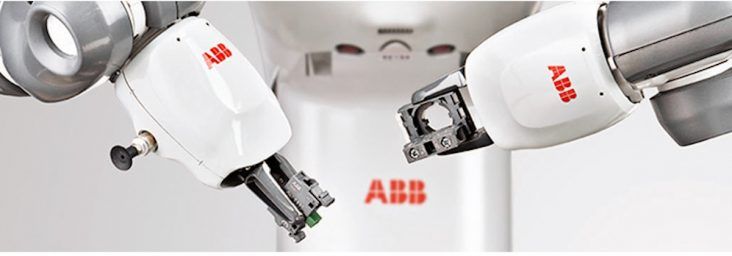Made in America: Robots on the rise as 2016 shipments jump 10%
by March 4, 2017 7:37 pm 329 views

Made in America is a roundup of manufacturing-related news.
ROBOTS ON THE RISE, 2016 SHIPMENTS JUMP 10% TO $1.9 BILLION
The Robotic Industries Association recently reported that the North American robotics market in 2016 broke all-time records for orders and shipments. During the year, 34,606 robots valued at approximately $1.9 billion were ordered in North America, representing growth of 10% in units over 2015. The automotive industry’s orders grew 17%. Units shipped to North American customers also grew by 10%, with 30,875 robots valued at $1.8 billion shipped in 2016. Shipments into the automotive market grew 25% relative to 2015.
According to the report, the fourth quarter of 2016 alone saw North American orders of 10,621 robots valued at $561 million, a growth rate of 18% in units ordered and 21% in revenue over the fourth quarter of 2015. Q4 shipments grew 33% on a unit basis with shipments of 8,825 robots valued at $494 million.
LG TO BUILD HOME APPLIANCE MANUFACTURING PLANT IN TENNESSEE, HIRING 600 WORKERS
Korean appliance and electronics giant LG announced plans on Feb. 28 to construct a new 829,000-square-foot home appliance manufacturing facility near Clarksville, Tenn. The project, located in Montgomery County, is expected to bring at least 600 full-time jobs to the area. LG’s new Tennessee facility is expected to be the world’s most advanced production plant for washing machines. Starting in 2019, the factory will initially produce front- and top-load washing machines. Longer term, the 310-acre site offers the potential to expand for production of other home appliances.
Under agreements with the State of Tennessee and Montgomery County, LG Electronics will receive support for construction, infrastructure improvements, job training and veteran recruitment. The project also includes incentives from the Tennessee Valley Authority. The announcement of the new home appliance factory in Tennessee comes on the heels of the start of construction of the LG North American Headquarters in Englewood Cliffs, N.J., where LG broke ground earlier this month. That $300 million project is expected to increase LG’s local employment there from 500 today to more than 1,000 by 2019.
NEW TECHNOLOGIES TO TRANSFORM MANUFACTURING SUPPLY CHAIN
Artificial intelligence and additive manufacturing or 3D printing are emerging technologies that have a huge potential in a variety of industries and applications. Despite both technologies being fairly new, particularly 3D printing, procurement market intelligence experts at SpendEdge state that these technologies have several applications in the supply chain for addressing procurement challenges, and will very soon become an integral part due to its improved and sophisticated functionalities.
Rapid prototyping is one of the most common uses of additive manufacturing (AM). 3D printing makes the creation of prototypes much easier and faster, allowing manufacturers to test multiple iterations of a design quickly. Since designing a successful product can be very expensive and time-consuming, 3D printed prototyping makes it quite simple and at the same time shortens the manufacturing cycle.
The impact of AM on supply chains is massive, some of which include increased manufacturing flexibility, reduced material waste, and the ability to employ decentralized manufacturing strategies. The technology reduces design complexity and material need, thereby helping companies work toward lean production as well as improve design quality.
